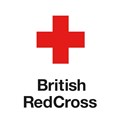Story
Flooding in Libya
On Sunday 10 September, Storm Daniel hit north-eastern Libya, causing strong winds and sudden heavy rainfall. The result was devastating flash floods, where “tsunami-like” waves swept away everything in their path.
In the port city of Derna, two dams burst under the pressure and entire neighbourhoods were destroyed by the three-metre-high flood waters. Thousands of people were killed, and bridges, buildings and vital infrastructure were badly damaged.
The eastern cities of Benghazi, Sousa, and Al-Marj also experienced flash flooding and, like Derna, are in urgent need of vital aid and support.
People are in desperate need of our help. If you can, please make a donation today.
How is the Red Cross helping?
People have lost everything. Right now, the Libyan Red Crescent is helping deliver vital aid to survivors in the flooded areas and is supporting with rescue efforts.
This includes:
• First aid and medical assistance
• Search and rescue
• Evacuating families
• Provision of food, water, emergency shelter kits and other relief items
Earthquake in Morocco
On Friday 8 September, 11pm local time, a 6.8 magnitude earthquake struck Morocco. The epicentre was in the High Atlas Mountains, approximately 70 kilometres south of Marrakesh. A 4.9 magnitude aftershock followed just 20 minutes later.
Local authorities are reporting that more than 2,900 people have died, with many more critically injured. The total number of people affected is in the hundreds of thousands.
Many of the worst affected areas are remote and mountainous, and the impact of the earthquake has made them even harder to reach.
People have lost everything. Homes have been reduced to rubble and survivors are in need of basic support like shelter, food and water.
How is the Red Cross helping people affected by the earthquake?
Local Moroccan Red Crescent teams were on the ground immediately responding to the earthquake. They are supporting authorities with:
• search and rescue
• provision of water, food, shelter and hygiene kits
• evacuation
• first aid
• transportation of injured people to hospital
• psychosocial support
As the situation develops, our teams will continue to help with the severe and immediate needs of those affected, as well as planning the longer-term support that will be needed in the weeks and months to come.
